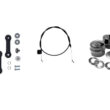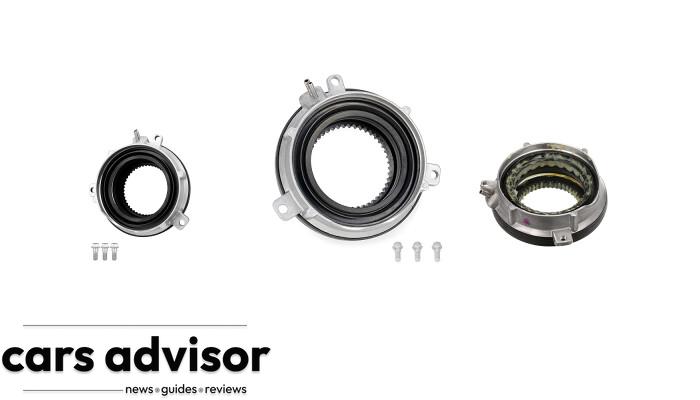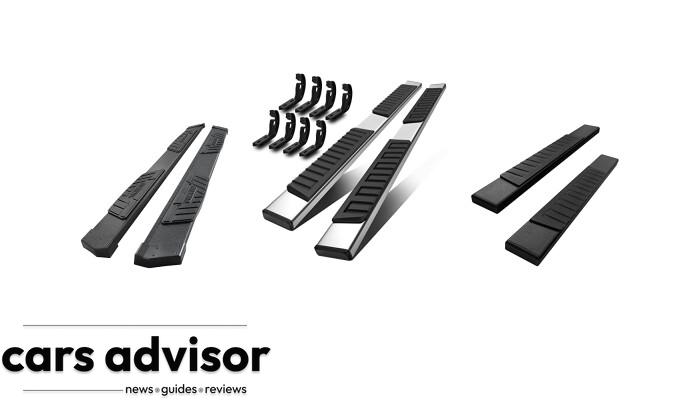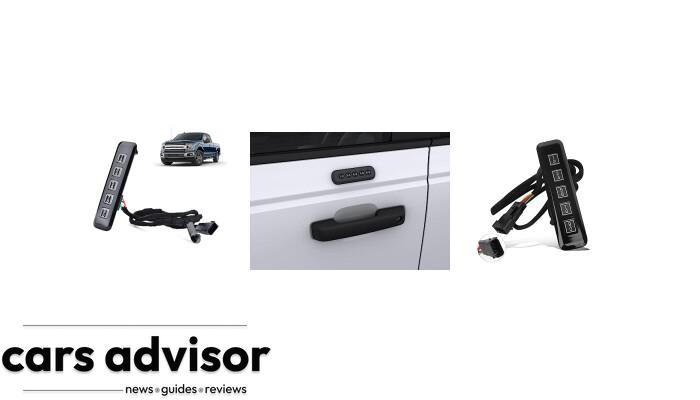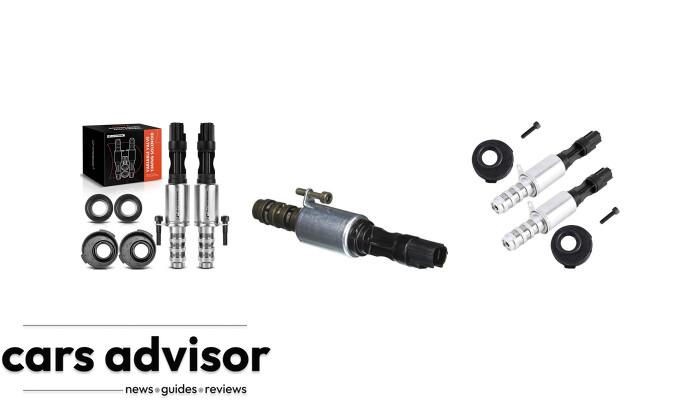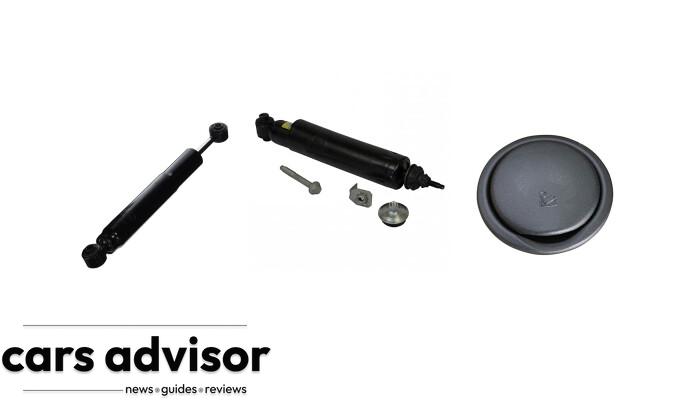Understanding An Overcharged Alternator
An overcharged alternator occurs when too much current and voltage enter your vehicle’s electrical system due to a faulty alternator, which can cause damage to other parts of the car.What Is An Overcharged Alternator?
An overcharged alternator occurs when the essential charging system component generates excessive electrical current and voltage, usually due to a malfunction within the alternator.This electrical powerhouse is vital in maintaining your vehicle’s battery life and ensuring that various electronic components function correctly.However, when it becomes overcharged, it can cause damage not only to the battery but also to other electrical systems in your car.A properly functioning alternator should generate a voltage range between 13.5 and 14.8 volts while charging the battery.Overcharging typically happens when this optimal range is exceeded, often due to faulty voltage regulators or bad ground connections.In some cases, such as with extensive wear or internal failure within the alternator itself, it may be necessary to replace the entire unit entirely to prevent further overcharging from occurring and causing more significant damage to your vehicle’s electrical systems.Importance Of The Alternator In Your Vehicle
The alternator is a critical component of your vehicle’s electrical system, providing power to the battery and other electrical components.Without it, your car won’t start or run properly. Think of it this way – the alternator acts like a generator that generates electricity while the engine runs.This is important because it helps keep the battery charged so that all your electrical systems can function properly.In addition to charging the battery, the alternator regulates voltage and current output. It ensures that electrical components receive enough power without being overloaded or damaged by excess voltage.If your alternator isn’t functioning correctly, you’ll likely notice issues like dashboard warning lights, dimming lights, weak batteries, and more.Overall, the importance of having a functional alternator in good condition cannot be overstated in ensuring optimal performance throughout your vehicle’s lifespan while avoiding costly repairs from damage due to under.Or overcharging of essential parts and accessories such as headlights, tail lights, fuses, bulbs life, etcetera underlining why proper maintenance should not be overlooked for prolonged service life.Signs And Symptoms Of An Overcharged Alternator
Flickering or dimming headlights, battery abnormalities, unusual noises and burning smells, blown fuses, and electrical malfunctions are signs that your alternator may be overcharging. Read on to learn more about these symptoms and how to prevent damage to your vehicle’s electrical system.Flickering Or Dimming Headlights
One of the most noticeable symptoms of an overcharged alternator is flickering or dimming headlights.This happens because as the voltage in the electrical system rises, it exceeds what is needed to power the lights, causing them to flicker or become less bright. In extreme cases, this can even cause the headlights to burn out quickly.If you notice your headlights behaving this way, it’s important to have your alternator checked immediately.An overcharged alternator can damage your vehicle’s battery and other electrical components and lead to more serious issues, such as a short circuit or even a fire.To prevent damage and ensure the proper functioning of your vehicle’s electrical system, ensure regular maintenance and inspections on all components, including alternators, batteries, and voltage regulators.By staying on top of these elements and promptly addressing issues like flickering or dimming headlights from an overcharging alternator, you can avoid costly repairs.Battery Abnormalities
If you notice any abnormal changes in your vehicle’s battery, it could be a symptom of an overcharged alternator. When the alternator produces too much power, it can damage the battery and cause it to malfunction.Some common signs of battery abnormalities include low electrolyte levels, swollen or heating batteries, seeping acid, and a shortened lifespan.Overcharging can also cause other electrical components in the car to malfunction. For example, if there is excessive voltage from an overcharged alternator that is directed towards a car’s electronic control unit (ECU), then it may create electrical noise resulting in engine misfires or erratic engine performance.These issues can lead to costly repairs down the road, so getting them checked out early by taking your vehicle into a repair shop or auto technician will help keep your wallet and vehicle safe.Unusual Noises And Burning Smells
If you notice unusual noises or burning smells coming from under your vehicle’s hood, it could be a sign that the alternator is overcharging.These sounds and scents may indicate that the internal components of your alternator are beginning to fail due to excessive voltage output.You may hear a buzzing or humming sound from the engine bay, which can grow louder as you accelerate or use electrical components like lights and air conditioning.At the same time, you might detect a burnt odour that resembles melting plastic, rubber, or even sulfuric acid. This smell can signify an overheated battery due to too much charging, causing its chemicals to leak and produce unpleasant vapours. If these symptoms persist, they can lead to serious engine damage and even fire hazards if left unattended.That’s why it’s crucial to immediately bring your car in for professional diagnosis if you experience unusual noises or burning odours.A reliable mechanic will inspect all relevant systems for signs of malfunction- including checking connections between wiring harnesses -and recommend appropriate repairs before more severe problems arise.So don’t hesitate; get your vehicle checked today!Blown Fuses And Electrical Malfunctions
Blown fuses and electrical malfunctions are common symptoms of an overcharged alternator.When the voltage regulator in the alternator fails, it can send too much voltage to the battery and other electrical components in your vehicle. This excess voltage can cause blown fuses or even complete electrical malfunctions.Not only can overcharging lead to these issues, but it also puts a strain on your battery and can shorten its lifespan.In extreme cases, overcharging may cause damage to other important components such as the power steering, air conditioning, ignition system, starter motor, and more.Don’t ignore warning signs like blown fuses or dashboard lights – take action immediately by having your charging system checked by a professional mechanic.Damage To Other Vehicle Components
Overcharging your vehicle’s alternator can cause damage to other electrical components as well. The excess voltage can lead to overheated wiring, melted insulation, and burnt fuses.It may also damage the starter motor or ignition system, which are vital for starting your engine.The power steering pump and air conditioning unit may also be affected by overcharged voltage since they rely on the proper functioning of the alternator.Additionally, if a short circuit occurs due to damaged wires or circuits, it could result in irreparable damage to various components within your vehicle.It’s essential always to keep an eye on your car battery life, and warning lights such as check engine light or red battery light on dashboards. Ignoring these signs can ultimately lead to bigger problems than just replacing a part of the charging system.Regular maintenance checks will help detect any issues from vehicle’s electrical systems that need repairs before causing more harm and costly expenses in future repairs.Can an Overcharged Alternator Cause My Car to Have Intermittent Starting Issues?
Yes, an overcharged alternator can indeed lead to car starting issues sometimes. When the alternator continuously generates excess electrical power, it can damage the battery and various electrical components, causing intermittent starting problems. This overcharging can result in decreased battery life and insufficient power to start the engine.
Common Causes Of An Overcharged Alternator
Several causes of an overcharged alternator include a faulty voltage regulator, loose or damaged belts, an old or malfunctioning battery, and excessive use of electrical components. Keep reading to learn more about how to fix and prevent this issue in your vehicle.Faulty Voltage Regulator
A common cause of an overcharged alternator is a faulty voltage regulator. The voltage regulator controls the amount of charge sent to the battery and electrical components, ensuring they receive enough power without overload.A malfunctioning voltage regulator can send too much current and voltage through the system, leading to overcharging.If you suspect a faulty voltage regulator, having your vehicle inspected by a professional mechanic is important.They can use diagnostic tools such as an OBD2 scanner to identify alternator or charging system issues. In some cases, replacing the voltage regulator may be necessary to prevent further damage.Regular maintenance and inspection of your vehicle’s electrical system can help prevent overcharging caused by a faulty voltage regulator.This includes checking wiring and connections for signs of wear or corrosion, testing and adjusting the voltage regulator as needed, and monitoring battery levels regularly.By staying on top of these tasks, you can ensure that your vehicle’s charging system stays in top condition for optimal performance and longevity.Loose Or Damaged Belts
Loose or damaged belts can also contribute to alternator overcharging. The alternator is driven by a belt that connects it to the engine’s pulley system. If this belt becomes loose, worn, or damaged, it may cause the alternator to spin faster than necessary and produce too much current and voltage output.This can result in an overcharged battery, blown fuses, and electrical malfunctions.Regular inspection of the belts is crucial for preventing overcharging due to loose or damaged belts. If you notice any signs of wear or looseness, such as squeaking noises when starting your car or visible cracks on the belt surface, replace them immediately.Neglecting these simple maintenance tasks could lead to costly repairs down the road. Remember that prevention is always better than cure regarding automotive battery maintenance and charging system failure avoidance!
If this belt becomes loose, worn, or damaged, it may cause the alternator to spin faster than necessary and produce too much current and voltage output.This can result in an overcharged battery, blown fuses, and electrical malfunctions.Regular inspection of the belts is crucial for preventing overcharging due to loose or damaged belts. If you notice any signs of wear or looseness, such as squeaking noises when starting your car or visible cracks on the belt surface, replace them immediately.Neglecting these simple maintenance tasks could lead to costly repairs down the road. Remember that prevention is always better than cure regarding automotive battery maintenance and charging system failure avoidance!Old Or Malfunctioning Battery
An old or malfunctioning battery can also contribute to an overcharged alternator. As battery ages, its ability to hold a charge decreases, making it more difficult for the alternator to regulate voltage properly.This can cause the alternator to work harder and potentially overcharge.If your vehicle’s battery is several years old or shows signs of wear and tear, such as bulging or leaking acid, it may be time for a replacement.A new and fully functioning battery will improve your vehicle’s overall performance and help prevent problems with the charging system.Regular maintenance and inspection are vital in identifying potential battery issues before they become bigger problems.Properly maintaining your vehicle’s electrical system and replacing components when necessary can save you time, money, and headaches.Excessive Use Of Electrical Components
Another common cause of an overcharged alternator is the excessive usage of different electrical components in your vehicle.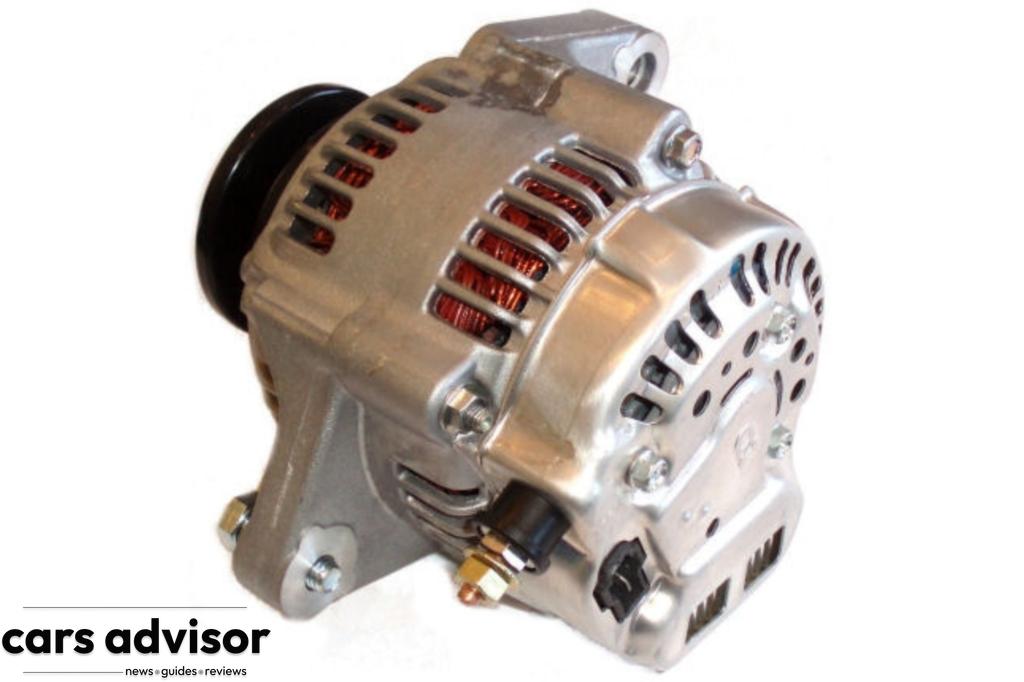 This can significantly strain the alternator, causing it to generate more current and voltage than necessary. Such components include air conditioning, power steering, radio, and headlights.Suppose you often use these electrical features for extended periods without giving your car’s charging system sufficient time to recover.In that case, this extra demand can lead to overheating and damage your battery and other critical electronic components in the vehicle.It’s always advisable to reduce excessive usage of electrical devices when possible or give your car enough time to recharge its battery between uses.Always remember that even though modern cars come equipped with powerful alternators capable of supplying electricity even during prolonged use of various electric devices simultaneously, it’s essential not to push them beyond their capabilities. Doing so could result in costly repairs down the line.
This can significantly strain the alternator, causing it to generate more current and voltage than necessary. Such components include air conditioning, power steering, radio, and headlights.Suppose you often use these electrical features for extended periods without giving your car’s charging system sufficient time to recover.In that case, this extra demand can lead to overheating and damage your battery and other critical electronic components in the vehicle.It’s always advisable to reduce excessive usage of electrical devices when possible or give your car enough time to recharge its battery between uses.Always remember that even though modern cars come equipped with powerful alternators capable of supplying electricity even during prolonged use of various electric devices simultaneously, it’s essential not to push them beyond their capabilities. Doing so could result in costly repairs down the line.What Are the Symptoms of an Overcharged Alternator in a 4.3L Vortec Engine?
The symptoms of an overcharged alternator in a 4.3L Vortec engine might include a burning smell, dimming or flickering lights, a high-pitched whining noise, or difficulty in starting the engine. Monitoring the voltage output and inspecting the battery can help identify the issue. It is important to note that the keyword difference between 4 3 and 4 3l vortec engine is referenced within this paragraph.
Several causes of an overcharged alternator include a faulty voltage regulator, loose or damaged belts, an old or malfunctioning battery, and excessive use of electrical components. Keep reading to learn more about how to fix and prevent this issue in your vehicle.Faulty Voltage Regulator
A common cause of an overcharged alternator is a faulty voltage regulator. The voltage regulator controls the amount of charge sent to the battery and electrical components, ensuring they receive enough power without overload.A malfunctioning voltage regulator can send too much current and voltage through the system, leading to overcharging.If you suspect a faulty voltage regulator, having your vehicle inspected by a professional mechanic is important.They can use diagnostic tools such as an OBD2 scanner to identify alternator or charging system issues. In some cases, replacing the voltage regulator may be necessary to prevent further damage.Regular maintenance and inspection of your vehicle’s electrical system can help prevent overcharging caused by a faulty voltage regulator.This includes checking wiring and connections for signs of wear or corrosion, testing and adjusting the voltage regulator as needed, and monitoring battery levels regularly.By staying on top of these tasks, you can ensure that your vehicle’s charging system stays in top condition for optimal performance and longevity.Loose Or Damaged Belts
Loose or damaged belts can also contribute to alternator overcharging. The alternator is driven by a belt that connects it to the engine’s pulley system. If this belt becomes loose, worn, or damaged, it may cause the alternator to spin faster than necessary and produce too much current and voltage output.This can result in an overcharged battery, blown fuses, and electrical malfunctions.Regular inspection of the belts is crucial for preventing overcharging due to loose or damaged belts. If you notice any signs of wear or looseness, such as squeaking noises when starting your car or visible cracks on the belt surface, replace them immediately.Neglecting these simple maintenance tasks could lead to costly repairs down the road. Remember that prevention is always better than cure regarding automotive battery maintenance and charging system failure avoidance!
If this belt becomes loose, worn, or damaged, it may cause the alternator to spin faster than necessary and produce too much current and voltage output.This can result in an overcharged battery, blown fuses, and electrical malfunctions.Regular inspection of the belts is crucial for preventing overcharging due to loose or damaged belts. If you notice any signs of wear or looseness, such as squeaking noises when starting your car or visible cracks on the belt surface, replace them immediately.Neglecting these simple maintenance tasks could lead to costly repairs down the road. Remember that prevention is always better than cure regarding automotive battery maintenance and charging system failure avoidance!Old Or Malfunctioning Battery
An old or malfunctioning battery can also contribute to an overcharged alternator. As battery ages, its ability to hold a charge decreases, making it more difficult for the alternator to regulate voltage properly.This can cause the alternator to work harder and potentially overcharge.If your vehicle’s battery is several years old or shows signs of wear and tear, such as bulging or leaking acid, it may be time for a replacement.A new and fully functioning battery will improve your vehicle’s overall performance and help prevent problems with the charging system.Regular maintenance and inspection are vital in identifying potential battery issues before they become bigger problems.Properly maintaining your vehicle’s electrical system and replacing components when necessary can save you time, money, and headaches.Excessive Use Of Electrical Components
Another common cause of an overcharged alternator is the excessive usage of different electrical components in your vehicle. This can significantly strain the alternator, causing it to generate more current and voltage than necessary. Such components include air conditioning, power steering, radio, and headlights.Suppose you often use these electrical features for extended periods without giving your car’s charging system sufficient time to recover.In that case, this extra demand can lead to overheating and damage your battery and other critical electronic components in the vehicle.It’s always advisable to reduce excessive usage of electrical devices when possible or give your car enough time to recharge its battery between uses.Always remember that even though modern cars come equipped with powerful alternators capable of supplying electricity even during prolonged use of various electric devices simultaneously, it’s essential not to push them beyond their capabilities. Doing so could result in costly repairs down the line.
This can significantly strain the alternator, causing it to generate more current and voltage than necessary. Such components include air conditioning, power steering, radio, and headlights.Suppose you often use these electrical features for extended periods without giving your car’s charging system sufficient time to recover.In that case, this extra demand can lead to overheating and damage your battery and other critical electronic components in the vehicle.It’s always advisable to reduce excessive usage of electrical devices when possible or give your car enough time to recharge its battery between uses.Always remember that even though modern cars come equipped with powerful alternators capable of supplying electricity even during prolonged use of various electric devices simultaneously, it’s essential not to push them beyond their capabilities. Doing so could result in costly repairs down the line.How To Fix And Prevent Overcharging Of The Alternator
To fix and prevent overcharging of the alternator, it’s important to replace or repair any faulty alternator components, check wiring and connections, test and adjust the voltage regulator, check and replace the battery if necessary, and conduct regular maintenance and inspection.Replace Or Repair Faulty Alternator Components
If your alternator is overcharging, replacing or repairing the faulty components is important.Here are some steps to take:- Check the voltage regulator: The voltage regulator controls the voltage the alternator sends to the battery. If it malfunctions, it can cause overcharging. Test and adjust or replace if necessary.
- Inspect wiring and connections: Faulty and loose connections can also cause overcharging. Check all wiring and connections for any signs of wear or damage.
- Replace damaged belts: Loose or damaged alternator belts can cause the alternator to spin too fast and produce too much energy, leading to overcharging. Replace any damaged belts as soon as possible.
- Test and replace the battery if needed: A failing battery may not be able to handle the excess charge from an overcharged alternator, causing additional problems down the line. Test the battery first before replacing it if necessary.
- Regular maintenance and inspection: Regularly maintaining your car’s electrical system can prevent minor issues from turning into major ones.
Check Wiring And Connections
One of the possible causes of an overcharged alternator is loose or damaged wiring and connections. It can disrupt the electrical flow from the alternator to the battery, causing the system to overcharge.To prevent this, follow these steps:- Check all wiring and connections for any signs of damage or corrosion.
- Tighten any loose connections with pliers or a wrench.
- Use a wire brush to clean any corroded connections.
- Make sure all wires are snugly secured in their designated spots.
Test And Adjust the Voltage Regulator
The voltage regulator is an essential component in the charging system of your vehicle’s alternator. If it malfunctions, it can cause overcharging, damaging your vehicle’s battery and other electrical components.Here are some steps to test and adjust the voltage regulator:- Test the voltage output: Use a voltmeter to test the voltage output from the alternator while the engine is running. The normal range should be between 13.5 and 14.8 volts.
- Check for loose connections: Make sure all connections are secure and clean.
- Check for corrosion: Corrosion on terminals or wires can affect performance.
- Adjust the voltage regulator: If the voltage is too high or low, you may need to adjust the voltage regulator using a screwdriver or wrench.
- Recheck the voltage output: After adjusting, recheck the output to ensure it’s in the normal range.
- Replace if necessary: If you can’t adjust or fix a faulty regulator, replace it with a new one.
Check And Replace the Battery If Necessary
If you suspect your alternator is overcharging, it’s important to check the battery. An overcharged alternator can cause damage to the battery and shorten its lifespan.Here are some steps to take:- Check the battery voltage using a multimeter. A fully charged battery should read between 12.6 and 12.8 volts.
- If the voltage is lower than this, charge the battery using a battery charger or by driving for an extended period.
- If the voltage exceeds this, disconnect the battery and test it again after a few hours to see if it holds its charge.
- If the voltage remains high even after disconnecting the battery, it may need to be replaced.
Regular Maintenance And Inspection
Regular maintenance and inspection of the alternator can prevent overcharging and ensure proper function.Here are some tips for maintaining and inspecting your vehicle’s alternator:- Check the serpentine belt regularly for signs of wear or damage.
- Inspect the alternator wiring and connections for corrosion, fraying, or other damage.
- Monitor battery voltage levels using a multimeter or check the dashboard gauge readings.
- Use an OBD2 scanner to check for any codes related to the charging system.
- Clean dirty battery terminals with a wire brush or terminal cleaner.
- Replace worn-out batteries before they fail and cause damage to the alternator.
- Have a professional mechanic perform a complete electrical system check as part of routine maintenance.
